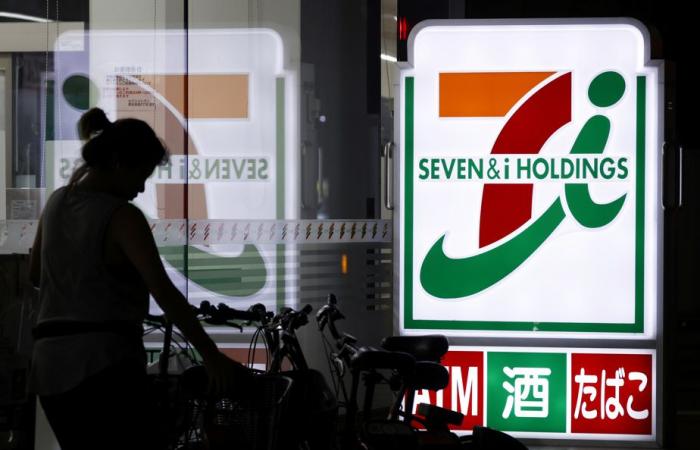If a foreign company bought Couche-Tard’s convenience stores, would national security be in danger? Probably not, but not everyone feels the same way.
Published at 7:00 a.m.
Japan cites the country’s national security to oppose the purchase of 7-Eleven convenience stores by the Quebec company Couche-Tard. Opposed to the transaction since its announcement in August, the Japanese government then described the convenience store chain as essential for the country. He did it again last week.
“If, for example, 7-Eleven becomes a wholly foreign-owned company with the pursuit of profitability as its first priority, will it really offer full cooperation in the event of a disaster? », argued Ryosi Akazawa, Minister of Economic Revitalization of Japan, according to his comments on January 9 reported in the media.
The argument is debatable. It implies that the current owners of 7-Eleven do not prioritize the pursuit of profitability, which would be surprising. He also implies that a foreign owner like Couche-Tard would not collaborate with the Japanese government during a disaster, which is hypothetical to say the least.
National security protection measures exist for rare and exceptional situations, such as in times of war. It seems that the argument of national security has become a weapon that is drawn to justify increasing protectionism, often ill-advised and even damaging for the country that uses it.
Japan’s sharp reaction to Couche-Tard’s attempted acquisition of 7-Eleven appears to respond to the US government’s clear refusal to authorize Nippon Steel’s takeover of US Steel. This transaction desired by the two companies could have strengthened the North American steel industry in the face of Chinese competition. It was blocked by the Biden administration.
A danger, but what danger?
The US president ruled that the transaction would endanger US national security, even though the buyer is one of its most valuable allies in Asia, who fully shares the West’s concern about hegemony industrial of China.
How could this transaction between friendly countries threaten the national security of the United States? The Committee Responsible for Reviewing Foreign Investment in the United States did not find obvious reasons, so it left it to the president to decide.
What motivated President Biden’s decision? We don’t really know, or rather we suspect it a little. The two companies, US Steel and Nippon Steel, have filed lawsuits against the US government, accusing them of blocking their merger for purely political reasons.
The fact that this transaction was announced in the middle of the presidential election campaign undoubtedly weighed in the balance, especially since US Steel’s head office is located in the key state of Pennsylvania. President Biden’s opponent, Donald Trump, also made it clear that he would oppose the transaction.
Now that he is elected, President Trump has already used the national security argument to justify the tariffs he dreams of imposing on the rest of the world. He raised the possibility of declaring a state of national emergency which would allow him to order all the tariffs he wants without needing to justify himself, in defiance of all the rules of international trade.
It wouldn’t be a first. Donald Trump did not hesitate to do so during his first term. It was in the name of national security that he imposed tariffs of 25% on steel and 10% on aluminum produced in Canada.
Was Canada, a staunch ally and reliable subcontractor of the United States, a threat to American security? Obviously, no. The objective was and will be the same this time: to pressure a country for political concessions, even if it comes at the expense of the interests of American businesses and consumers.
In the case of US Steel, its executives are convinced that the company will not survive if the merger with Nippon Steel aborts. We’ll have to see.
In the meantime, we can be concerned that the national security argument is now being misused by elected leaders of a democracy to allow them to make decisions without being accountable to anyone. As in autocratic regimes.






